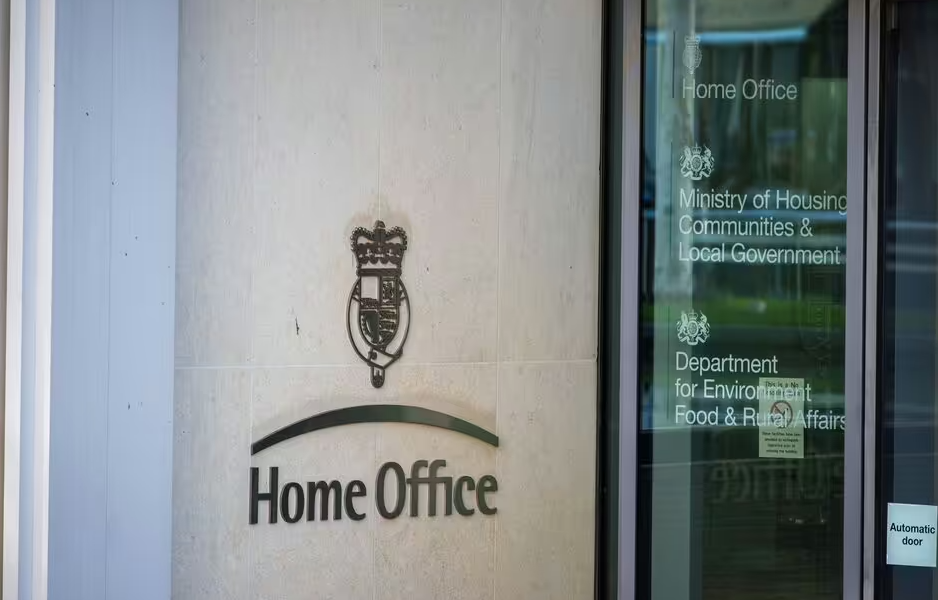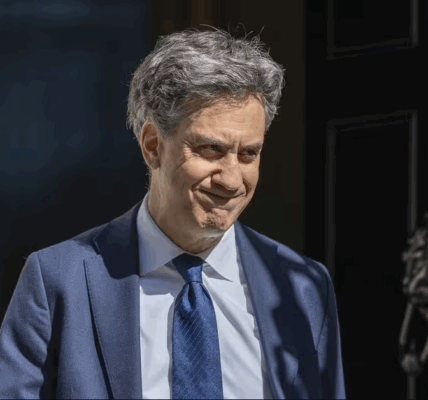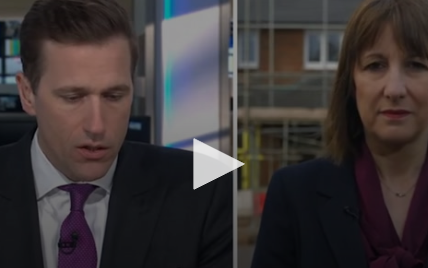I’m the UK’s Border Chief – Here’s My Plan to Reduce Migration
As with all organised crime, there is a terrible human cost to the activities of those smuggling men, women and children across borders.

I’m the UK’s border boss – here’s how I plan to cut migration (Image: Getty)
I know from my 30 years in the police, just how extensive international criminal networks can be, spanning continents to peddle their illegal trade. People smuggling gangs are no different.
As with all organised crime, there is a terrible human cost to the activities of those smuggling men, women and children across borders.
They think nothing of the misery and danger that they are subjecting these people to – their only concern is lining their pockets.
Sadly, we know only too well how this ends for some. 78 people died in the Channel last year.
Whether drowned at sea or suffocated to death in the backs of lorries, far too many lives have been lost at the hands of these criminals.
But this is not a problem unique to the UK. Across the world countries are grappling with increased irregular migration. Not only does it lead to unimaginable suffering, but it also undermines the border security of those destination countries and confidence in our immigration systems. It is clear no one country can tackle this alone.
We have already made strides in strengthening our international partnerships across the globe to tackle the criminal networks responsible since I took on the role as Border Security Commander last year.
This includes agreements with Iraq and Western Balkan countries to strengthen border security and to increase information sharing to prevent the smuggling of migrants by criminal gangs, as well as establishing a new joint taskforce with Italy to go after the criminal profits.
We are also working with our close neighbour, France, investing in stronger enforcement activity along the northern coast to intercept the small boats before they reach the sea, and go after the criminal trafficking networks operating there.
A large part of our work is improving our coordination with law enforcement agencies from source countries, where we know many migrants originate from, as well as those countries they are known to transit through on their way to the UK.
And we are seeing real results.
Recent successes have included working with Dutch, Belgian, Bulgarian, Italian and Kurdish counterparts to arrest many members of global gangs suspected of facilitating thousands of crossings or supplying small boats equipment.
I know that the NCA is grateful for the extraordinary cooperation it receives from partners across Europe and around the world. But of course, there is more we all need to do.
We are targeting the source and transit of the equipment that facilitates these dangerous crossings, working with countries such as Bulgaria and Germany.
Just recently we agreed an ambitious agreement with Germany – the UK-Germany Joint Action Plan.
This plan will strengthen our law enforcement and legal responses to migrant smuggling, ensuring criminal smugglers in Germany will be brought to justice for smuggling people to the UK.
Domestically, the Border Security, Asylum and Immigration Bill is currently going through Parliament.
This will strengthen law enforcement capabilities in the identification, disruption and prevention of organised immigration crime through the creation of new criminal offences and expanded data-sharing powers.
The Bill will address threats to border security and strengthen operations right across the system.
And tomorrow, we will be hosting global government and law enforcement leaders at a landmark summit to secure commitments to intensify international efforts to tackle people smuggling gangs.
It will bring together representatives from Africa, Asia, the Middle East, Europe and North America with the aim of securing our collective borders, stopping the exploitation of vulnerable migrants and tackling the international threat from organised immigration crime.
In the coming months, my priorities will be focused on attacking the business model of organised immigration crime.
I will continue to work with other governments and law enforcement partners across the world to ensure that we can curb the activities of the criminal gangs enabling this.
Global problems call for international solutions and that is exactly what the Border Security Command was established to do.
No matter where they are operating, be it the UK, or globally, we will stop at nothing to bring an end to this deadly trade as the Border Security Command intensifies its efforts to boost our border security through the Plan for Change.



